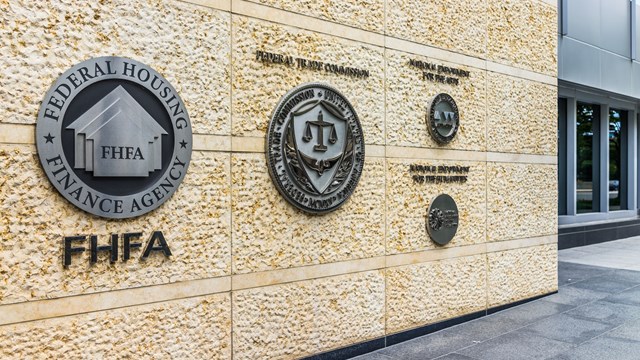If laws weren't made to be broken, they at least need to be amended once in a while. As a community's residents change—and the world in general changes around the community—yesterday's rules and bylaws can become outdated or no longer suitable. A condo or co-op may have initially prohibited ownership of pets, but as the years go by more owners may owners may want a cat or dog, so it might be time to change the rules.
"Things become out of date," says J. David Ramsey of the law firm Ramsey Berman, P.C. in Morristown, and chair of the firm's Real Estate Practice section. "Some things don't work as the draftsman intended, or the community itself may have changed. One of the best examples of how life has changed is where most master deeds will say units can be used only for residential purposes, no business purpose is permitted. But today, a lot of people telecommute—and as long as they're not seeing customers and trucks aren't making deliveries and all they're doing is working on a computer, who could care less? Technically that would be a violation, but it's not something that is offensive to most people.
"So very often when we're making amendments to governing documents, we will say, 'For residential use only. However, businesses that are totally within the home that involve no customers, no traffic and no other external impact are permitted if they're permitted by the zoning laws. Times change—20 years ago, nobody telecommuted, but now a lot of people do."
Rules vs. Laws
Different people can mean different things when using the word "bylaws." But in legal terms, there are generally two phrases used to describe a community's rules: one is a restricted covenant, which is written into the governing documents of a community —either the master deed or the bylaws. Other standards are known simply as rules.
"A rule is generally adopted by the board, although sometimes there'll be an attachment to the bylaws that says, 'The following house rules shall apply until the board shall change them,' Ramsey says. "So with rules, the board has the ability to make or change rules. With restrictive covenants, only the owners can change them by amending the governing documents."
"The first thing is to determine whether the item you're looking at is truly a rule, or whether it's a restrictive covenant contained in the master deed or declaration. Then you can determine what the requirement is for actually amending it—whether it's done by the board, or by the members," says Ron Perl, a partner with Hill Wallack in Princeton, and in charge of the firm's Community Association Law group.
While there are no hard and fast rules as to what makes a restrictive covenant (or restriction) and a rule, in general restrictions refer to things that can or cannot be done in an apartment of on common property. Rules tend to apply to areas where the board already has power.
"The board has rule-making authority that is contained in the bylaws, and you have to read the bylaws to determine what limitations, if any, are on the board's ability to make rules and regulations," says Perl. "Sometimes it says the board can make rules and regulations regarding the use of the common elements. Some are more broadly worded to say that the board can make rules and regulations governing the use of the property and that means conduct throughout the association can be governed by rules."
"If the declaration or master deed says you can only have two pets, the board can't change that to only one pet," Ramsey says. "However, the board could adopt a rule saying that when pets are on the property, they must be leashed. The board would be authorized to do that because the board and by the governing documents have authority over common property. They can make sure the property is kept clean and that it's safe, so if they think there's a safety issue on the common property because of unleashed dogs, they can enhance the safety by requiring that they be leashed. But they couldn't change the basic rule of how many pets you can or cannot have.
"It's not always easy to figure out what is a rule and what is a restriction," Ramsey continues, "but usually if it goes to the element of using your unit, it has to be by restriction. Sometimes I'll get a situation where people will ask, 'Residents on the upper floors have hardwood floors and make a lot of noise so the people below can't sleep. Can the board adopt a rule requiring carpeting?' The answer is no, because that has to be a restriction that is in the governing documents. . . The board can't do it by rule."
When it's Time for Change
In general, changing a restriction is more involved than changing a rule and while there are general procedures most associations follow, each condo or co-op will have its own standards for amending restrictions and rules.
"The association's documents will tell you what the process is [for changing restrictions]," Ramsey says. "There's usually a provision called an amendment provision that will tell you exactly what has to be done to amend those documents. Typically, master deeds require two-thirds of all unit owners to vote in favor of an amendment. Bylaws can be a majority of owners or can be as much as two-thirds—that's the most typical kind of provision."
According to Ramsey, there are currently no state guidelines requiring any sort of standards for communities to follow when amending their rules and bylaws. That may change, however, if the Uniform Common Interest Ownership Act (UCIOA) is passed by the state Legislature and Senate—if that's the case, some minimum criteria for changing amendments would be put in place.
"It would provide a much-better framework than existing law does," Perl says of the UCIOA proposal. "One of the things it does by allow for default provisions that take effect when your bylaws or your declaration is silent in certain issues. There's already some of that in existing law but there would be far more comprehensive default rules in the uniform act."
Only a ruling by the board is needed to change rules. But Ramsey says boards should take certain steps before voting on a change to a rule.
"If any of the boards I represent are considering changing their house rules, I recommend that they notify the unit owners of their plans and tell them at which meeting they'll be discussed. That way, the unit owners have a chance to hear what's going on and provide some input—because sometimes those changes can be pretty significant."
Let's Look That Over
Rules should be looked over occasionally for a variety of reasons. And people making up a new community should waste no time in giving their association's laws a thorough examination.
"The most important thing to remember is that the governing documents and use-restrictions in them are gifts from the developer," says Perl, who teaches a course in community association law at Seton Hall and writes frequently about the topic. "The developer is not used to living in the association, is not really aware of what operational issues could exist in the association, so I think it's important that even in the initial stages of an association's life, that the owners should take a look at the regulations when they take over. See which ones are necessary, and which are unnecessary."
Perl suggests forming a rules committee to look over the rules and recognize which regulations may need to be changed or eliminated. The developer may have included rules that no longer apply to the community, may have been proven to not work in other communities, or are simply not wanted by the members of the association. These suggestions should be brought to the association's attorney so that they can be written up properly, and well-publicized meetings should be held for these proposed changes to be discussed.
"The committee and the board should then determine the wishes of the community and ultimately make a decision as to what the final language should be and put it to vote," Perl says.
The state of New Jersey does not require communities to review their rules periodically, though the UCIOA bill would require reviews at least every six years. But even without a legal requirement, associations should be reviewing their existing laws regularly - at least every five to six years.
"It might be worthwhile to do it more often," says Ramsey, "but a lot of times, people just have so much do that they don't want to bother. But I think every five to six years at a minimum, you ought to take a look at them—and if there are rules you're never enforcing that are never coming into play, get rid of them."
"You should only have rules that are necessary to the well being of the community," Perl says. "You shouldn't have rules just for the sake of having rules. Rules are hard enough to enforce anyway, so why try to enforce one that doesn't impact the health, safety and welfare of the community's residents?"
Signs of the Times
But when it comes to things that don't specifically impact the health, safety and welfare, how much say should an association have? Can the board really dictate things like what members can place on their property? The answer isn't always black and white. By deciding to live in a condo or co-op, residents essentially give up certain liberties in return for services, amenities, and the ability to live in an aesthetically controlled community. In light of that, associations can place certain limits on things that local governments cannot—things like yard ornaments, landscaping elements, and political signs.
Ramsey says there is currently a case in New Jersey courts regarding Twin Rivers, a community in Hightstown that has rules prohibiting residents from putting political signs up in their yards. Homeowners took the association to court, claiming their freedom of expression was being infringed upon by these rules. The trial court ruled in favor of the association, but the case could end up in the state Supreme Court.
"As of this moment, however, the law generally is boards can prohibit even political signs," Ramsey says. "While a town can't prohibit a political sign on private property, in a private community, the governing documents can prevent it, and almost every set of governing documents out there will say no signs."
Some communities may allow signs during the political season—during the two weeks leading up to a major election, for example—but the association can place limits on the size of signs, as well as color or content.
"The association can say, 'We're accepting this because we think people should have the right to express themselves,'" Perl says. "That's the choice the owners make. But the owners should also have the right to say, 'We just don't want signs. Vote for whomever you want, but there's enough political advertising and we don't want it on their front lawns.' That should be their right too."
Aesthetics is a big reason for these restrictions, but Perl says there's another one.
"When the developer drafts the governing documents, the last thing that developer wants is somebody putting a sign up that says, 'This developer stinks.' So they prohibit signs altogether, so that if an owner tries to do that, the developer-controlled board can tell the owner there's a restriction that says no signs."
Once the developer has transferred control to an owners-only board, however, those kinds of rules—or others like them—may become unpopular, or just unnecessary, says Ramsey. It's at that point that the board must convene and take a long, hard look at the rules and regulations governing the association and decide what's best for the community in the here-and-now. If a rule is antiquated, unpopular, or obsolete, it may be time to do some housecleaning and get rid of it. The healthiest community associations are the ones that change with the times, and acknowledge the wishes of their members. Keeping rules and regulations up-to-date is one way for boards to do just that.
Anthony Stoeckert is a freelance writer and frequent contributor to The New Jersey Cooperator.







Leave a Comment